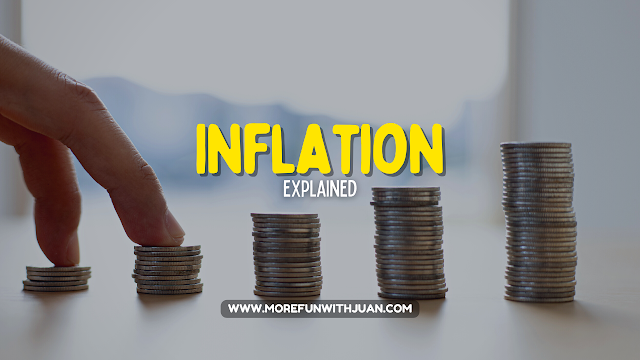What is inflation and how does it affect you?
Inflation Meaning
Inflation refers to the sustained increase in the general price level of goods and services in an economy over a period of time. It means that, on average, the prices of goods and services are rising, leading to a decrease in the purchasing power of money. Inflation is typically expressed as an annual percentage, indicating the rate at which prices are rising.
Factors That Affects Inflation
There are several factors that can contribute to inflation:
Loading...
Demand-Pull Inflation
This occurs when the demand for goods and services exceeds their supply. When consumer demand outpaces production capacity, sellers can increase prices, leading to inflation.
Cost-Push Inflation
When the cost of production for goods and services rises, businesses might pass on these higher costs to consumers through price increases. Factors like rising wages, energy costs, or supply chain disruptions can lead to cost-push inflation.
Built-In Inflation
Also known as wage-price inflation, this occurs when workers demand higher wages to keep up with rising prices. Businesses might then increase prices to cover the higher wage expenses, creating a cycle of increasing costs and prices.
Monetary Policy
If a central bank increases the money supply through actions like printing more money or lowering interest rates, it can lead to increased demand for goods and services, potentially causing inflation.
Supply Shocks
Unforeseen events such as natural disasters, geopolitical tensions, or sudden disruptions in the supply chain can lead to shortages and drive up prices, causing supply-driven inflation.
ATTRACTIONS TO SEE IN MANILA
Klook.comMarkets That Usually Affected by Inflation
Inflation can have various effects on an economy:
Reduced Purchasing Power
As prices rise, the same amount of money can buy fewer goods and services, leading to a decrease in purchasing power for consumers.
Uncertainty
High inflation can create uncertainty in financial markets and business planning, making it difficult to accurately forecast costs and revenues.
Income Redistribution
Inflation can affect different groups of people unevenly. For example, individuals on fixed incomes might struggle to keep up with rising prices, while those with variable income sources might fare better.
Interest Rates
Central banks often use interest rates to control inflation. High inflation can prompt central banks to raise interest rates to curb spending and borrowing, which can impact lending, investment, and economic growth.
Savings and Investments
Inflation erodes the value of money held in savings accounts or other low-interest-bearing assets. Investments that don't outpace inflation can lead to real losses.
International Competitiveness
If a country's inflation rate is significantly higher than that of its trading partners, its exports might become more expensive relative to imports, potentially impacting trade.













No comments
Let us know your thoughts!